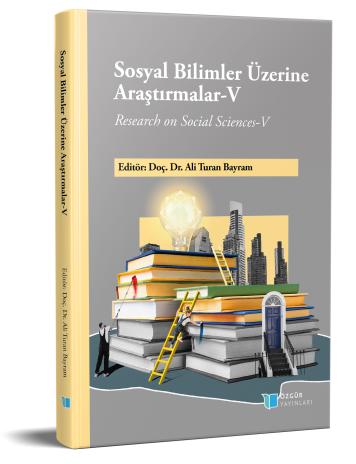
Framework, Mentality and Problem in the Ottoman Economy
Chapter from the book:
Bayram,
A.
T.
(ed.)
2023.
Research on Social Sciences- V.
Synopsis
History, on the one hand, refers to the whole of time-sequential events in past periods, and on the other hand, it is a science that tries to explain these events, whose subjects are human beings and societies, within the framework of cause and effect. While the practical equivalent of people's production-division and expenditure relations is called economy, the science of economics focuses on solving the problems arising from the functioning of these material foundations. In this direction, it tries to find a balanced correspondence between people's economic aspirations and the resources available to meet these aspirations.
Economic history, on the other hand, lies at the intersection of history and economics and examines the economic activities of past periods and the institutions built on these activities from a long-term perspective. The importance of a long-term perspective here lies in the fact that, in contrast to the short-term character of political events, economic changes and trends can take their course in the long run. Despite the multiplicity of commonalities, economic history is a field of economics, not of history, since it examines the issues that come into existence in the time sequence of history within the framework of the characteristics of the science of economics.
While a history of the world economy can be written with a general approach, subjective economic histories can also be written by considering certain sub-divisions such as geography, etc. The study of Ottoman-Turkish economic history is of this kind. In particular, the loss of the validity of linear approach theories of economic development has made the importance of Ottoman-Turkish economic history studies even more evident. The starting point of economic history research in Turkey can be traced back to the Anatolian Seljuk Empire (1075).
Thus, economic history studies in Turkey can be emphasized in three main categories: the pre-Ottoman period, the Ottoman period and the Republican period. In this broad time span, it is important to open a separate parenthesis for the Ottoman economic history since the Ottoman period is the dominant period. It is possible to study the field of history of Ottoman economy by understanding the Ottoman economic system and explaining the problems faced by the economic practices operating around this system and the changes and transformations carried out to eliminate these problems in the context of cause and effect. This study aims at the first step. By approaching the material foundations of Ottoman society from a holistic perspective, the study aims to reveal the outlines of the Ottoman economic system in the context of framework, problem and mentality. For this purpose, deductive reasoning is adopted when using the analytical tools of economics to interpret historical events that can be materially grounded, and inductive reasoning is adopted when interpreting the findings and drawing general conclusions.

